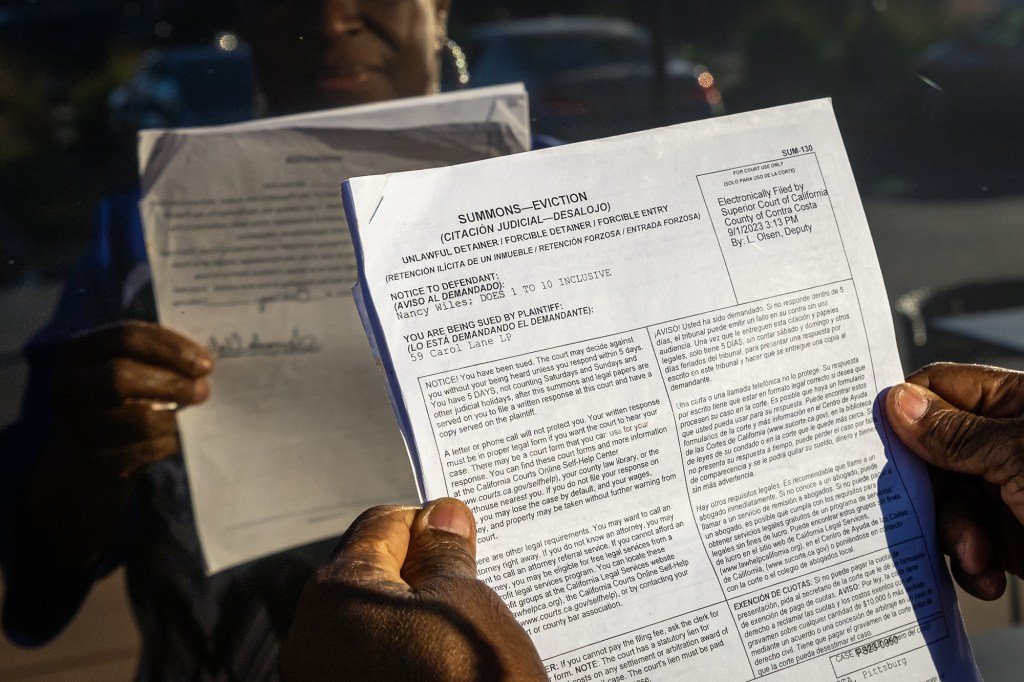California’s Rent Control Battle: A Tenant’s Plight Amidst Political Resistance
In the heart of Fremont, as dusk draped the city in a soft golden hue, Aisha Wahab sat amidst piles of paperwork, her brow furrowed with frustration. The fate of many families hung delicately in the balance, tethered to Senate Bill 436—a modest proposal intended to grant tenants an extra two weeks to pay overdue rent before landlords could initiate eviction proceedings. “Two weeks might seem trivial,” Wahab remarked passionately at a recent assembly, “but it could mean the difference between a family staying housed or being thrust into homelessness.”
The Political Landscape
Wahab’s plea was met with a mixture of skepticism and political calculus that has become characteristic of California’s legislative process. The Senate Bill failed to pass through the Assembly Judiciary Committee—an echo of the broader struggles progressive lawmakers have faced in pushing for tenant protections amidst an increasingly polarized political environment. Despite claims from her colleagues about the necessity of protecting “mom-and-pop” landlords, the broader data paints a starkly different picture.
A Differing Perspective
“California has the highest rents and one of the most profound housing crises in America,” noted Dr. Maria Torres, a housing policy analyst at the Urban Housing Institute. “Yet, the political will to empower tenants has somehow diminished.” Many view the failure of Wahab’s bill as emblematic of a larger narrative where grassroots needs clash with entrenched interests.
Voices of Concern
- Aisha Wahab: “This is a very small ask from the state of California.”
- Dr. Maria Torres: “The voices of tenants have been muffled by the powerful landlords’ lobby.”
- Assemblymember Ash Kalra: “They’re trying to survive, and we need to have that in the front of our mind.”
The Split Amongst Democrats
What makes the demise of Wahab’s bill particularly striking is that it was opposed not only by Republicans but also by members of her own party. Comments from Assemblymember Blanca Pacheco, who previously represented landlords in eviction cases, revealed a deep-seated fear of overregulating property rights. “The current eviction process can take months,” she asserted. “We can’t overlook the impact on small landlords who rely on rent for their livelihood.”
Shifting Perspectives
Kalra, however, adopted a contrasting viewpoint that resonated with many constituents suffering under the weight of soaring rents. “We can no longer ignore that previous generations had opportunities to purchase homes that are now completely unattainable to many. This bill could provide the breathing room needed to prevent homelessness,” he stated during the committee hearing.
The Financial Forces at Play
Behind Wahab’s struggles lies a complex layer of financial power dynamics. The bill required seven votes to advance but garnered only six, an unfortunate reflection of the substantial lobbying efforts made by landlord and banking associations, comprising some of the largest political spenders in California. In stark contrast, tenant advocacy groups, though earnest, have minimal financial backing, often struggling to make their voices heard amid the clamor of well-financed opposition.
Contributions Speak Volumes
The gap in political spending reveals a larger narrative:
- Landlord and banking associations contributed at least $13.7 million to state legislators since 2015.
- Tenant advocacy organizations, meanwhile, spent a fraction of that to support their causes.
- Political contributions have often swayed legislative outcomes, favoring landlord interests over tenant protections.
A Fleeting Chance?
The committee’s decision to allow for “reconsideration” of the proposal offers a slight glimmer of hope for tenant advocates. However, history suggests that such opportunities often fade away, lost in the deluge of legislative priorities. “While we hope to see it return, the reality is that without significant advocacy, such proposals often languish,” Wahab lamented.
As California contends with one of the most pressing housing crises in the nation, the narrative woven through Wahab’s bill serves as a reminder of the ongoing battle between tenant rights and economic interests. For many families in California, the outcome reverberates far beyond congressional chambers, impacting deeply personal lives and the very fabric of communities. Advocates and lawmakers alike must navigate these treacherous waters, hoping against the odds that compassion and reason will eventually prevail in the state’s housing discourse.





